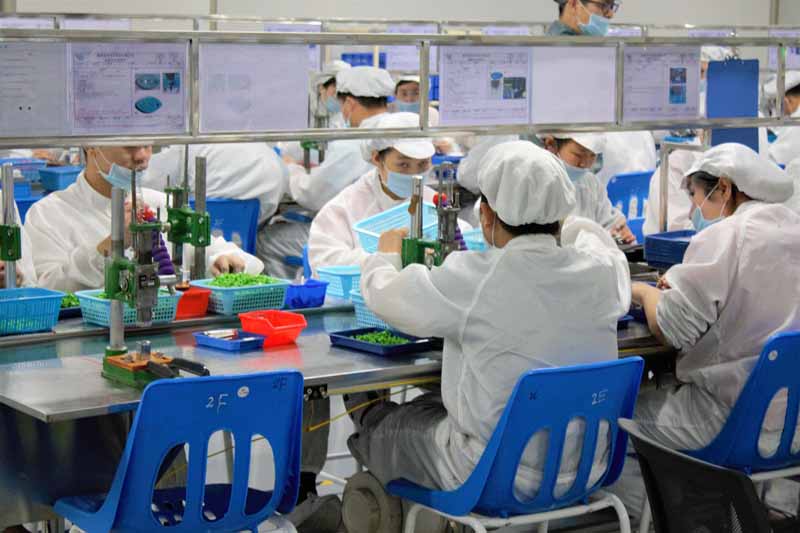
When the U.S. Food and Drug Administration authorized the NJOY Ace vaporizer and its tobacco-flavored e-liquid pods on April 26, the Ace became the first e-cigarette authorized by the FDA equipped with a ceramic coil. That coil is manufactured by FEELM, Smoore International’s flagship atomization tech brand.
The Ace marketing orders mark the first approval by the FDA of a pod vaping product. It is also the first approval of any vaping product manufactured by a company that is independent of the tobacco industry.
Smoore products have a good record of securing FDA authorizations. The first brand to receive marketing orders through the premarket tobacco product application (PMTA) pathway, Vuse Solo, is a strategic partner of Smoore, a Smoore representative told Tobacco Reporter’s sister publication, Vapor Voice. The second set of approved electronic nicotine-delivery system (ENDS) products, produced by Logic, are also manufactured by Smoore.
“NJOY has partnered with Smoore since 2009. The NJOY Ace was launched in 2018 and is powered by FEELM inside, the world’s first black ceramic atomization coil with metallic film. As the first ceramic coil e-cigarette and pod vape authorized by the FDA, NJOY Ace’s approval for sale fully showcases the harm reduction potential of FEELM ceramic coil,” the representative said.
“According to the FDA, NJOY Ace is authorized for sale because ‘chemical testing was sufficient to determine that overall harmful and potentially harmful constituent (HPHC) levels in the aerosol of these products is lower than in combusted cigarette smoke.’”
Based on PMTA requirements, Smoore established a comprehensive analytical testing and safety assessment system, including the vaping industry’s first corporate toxicology laboratory, which explores the health impacts of exposure to e-cigarette vapor by means of cytotoxicity test, evaluating the reaction of living cells to different components of e-cigarette vapor, according to Smoore.
The company has also developed the third generation of in-house safety standards—Smoore 3.0—that covers all of the PMTA tests, including harmful and potentially harmful constituents (HPHCs) listed by the FDA.
“The principle of PMTA is to scientifically and systematically substantiate harm reduction performance of the vaping product and show it is appropriate for the protection of the public health (APPH),” said Long, director of the Smoore Analytical Testing and Safety Assessment Center. “The manufacturer must demonstrate the product’s potential to switch adult smokers while preventing youth and non-smokers from nicotine addiction.”
Long said this could explain why all the FDA-authorized vaping products so far have been for tobacco flavors, and popular flavored products the agency has said promote youth use have been issued marketing denial orders. It is also an indication that vaping manufacturers should focus on “tobacco flavor reproduction and improve harm reduction performance” in order to be approved under the PMTA pathway.
According to Nielsen, for the two weeks ended April 9, 2022, Vuse has now surpassed Juul and become No.1 in U.S. e-cigarette sales with a market share of 35 percent. Its flagship product Vuse Alto is also equipped with FEELM ceramic coils.
As the No. 3 player in the U.S., NJOY accounts for approximately 3.1 percent market share. Moreover, a federal judge has required the FDA to provide progress reports on PMTAs submitted by major vaping brands and the first reports are due on April 29.
The FDA also found that the risk to youth initiation with NJOY’s Ace was outweighed by the benefit to adult smokers, warning that NJOY must comply with strict post-marketing requirements.










